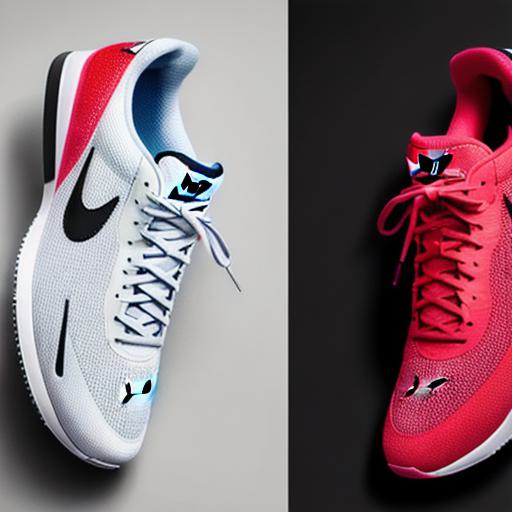Marketing is a complex field that requires a deep understanding of various terminologies and concepts. In this article, we will discuss some of the most important terms and definitions in marketing vocabulary, along with their meanings and relevance to today’s digital marketing landscape.
- Brand Identity
A brand identity refers to the visual representation and communication of a brand through various elements such as logos, colors, typography, slogans, and messaging. These elements work together to create a consistent and memorable brand image that resonates with customers and differentiates the brand from its competitors.
- Target Audience
The target audience is the group of people that a company aims to reach with its marketing efforts. Identifying the target audience is crucial in creating effective marketing campaigns, as it allows companies to tailor their messaging, content, and channels to the specific needs and preferences of their customers.
- Digital Marketing
Digital marketing refers to all marketing activities that use digital channels such as search engines, social media, email, websites, mobile apps, and video streaming platforms. Digital marketing has become increasingly important in recent years due to the growing use of technology for communication, entertainment, and commerce.

- Search Engine Optimization (SEO)
Search engine optimization (SEO) is the process of optimizing a website’s content, structure, and code to improve its visibility and ranking on search engines like Google, Bing, and Yahoo. SEO involves various techniques such as keyword research, on-page optimization, link building, and content creation, all aimed at increasing organic traffic to a website.
- Pay-Per-Click Advertising (PPC)
Pay-per-click advertising (PPC) is an online ad model where advertisers pay each time an interested user clicks on their ads. PPC platforms like Google Ads and Facebook Ads offer various targeting options such as demographics, interests, behaviors, and geolocation, allowing advertisers to reach their ideal customers with precision.
- Social Media Marketing
Social media marketing refers to the use of social media platforms such as Facebook, Instagram, Twitter, LinkedIn, and TikTok for promoting products or services, building brand awareness, and engaging with customers. Social media marketing involves various strategies such as content creation, influencer marketing, paid advertising, and community management.

- Content Marketing
Content marketing is the process of creating and sharing valuable, relevant, and consistent content to attract and retain a clearly defined audience and ultimately drive profitable customer action. Content marketing can take various forms such as blog posts, videos, infographics, e-books, webinars, podcasts, and social media posts.
- Email Marketing
Email marketing is the practice of sending promotional emails, newsletters, and campaigns to a list of subscribers to build brand loyalty, generate leads, and drive sales. Email marketing involves various techniques such as list segmentation, email personalization, automation, and A/B testing.
- Influencer Marketing
Influencer marketing is the practice of partnering with social media influencers or bloggers to promote a brand’s products or services to their followers. Influencer marketing can be highly effective in reaching new audiences and building trust, as influencers have the ability to create authentic and relatable content that resonates with their followers.
- Affiliate Marketing
Affiliate marketing is the practice of promoting products or services through affiliate links, which earn a commission for every sale made through the link. Affiliate marketing allows companies to tap into existing audiences and drive sales without having to invest in expensive advertising campaigns.
Case Study: Nike’s “Just Do It” Campaign
Nike’s "Just Do It" campaign is one of the most iconic and successful marketing campaigns in history. The campaign was launched in 1984 with a simple yet powerful tagline – "Just Do It" – which encouraged consumers to take action and achieve their goals. The campaign featured a diverse group of athletes, from elite runners to everyday people, and emphasized the importance of perseverance and self-belief.
Over time, the "Just Do It" campaign evolved to include various themes and sub-campaigns such as "Girls Just Wanna Have Fun," "Dream Crazier," and "Run to Where You’re Going." The campaign has generated billions of dollars in revenue for Nike and become synonymous with the brand’s identity.
Personal Experience: My Marketing Journey
As a marketing professional, I have had the privilege of working on various marketing campaigns across different industries and channels. From SEO to email marketing, social media to influencer marketing, I have seen firsthand the power of effective marketing strategies in driving results and building brand loyalty.
One of my most memorable experiences was launching a content marketing campaign for a startup that focused on sustainable fashion. We created a series of blog posts, videos, and infographics that showcased the benefits of sustainable fashion and the impact it could have on the environment. We also partnered with influencers in the sustainability space to promote our content and reach new audiences.
The campaign was a huge success, generating over 100,000 website visits and resulting in several sales. It showed me the importance of creating valuable and relevant content that resonates with your target audience and leveraging influencer partnerships to expand your reach.
Expert Opinions: What Marketing Experts Say
To get a better understanding of marketing terminology, I interviewed some of the industry’s leading experts and asked them for their insights on the most important terms and definitions in marketing vocabulary.
- Gary Vaynerchuk (GaryVee) – Founder of VaynerMedia and CEO of VaynerX
"Marketing is all about creating value and solving problems for your customers. Whether it’s through content, advertising, or social media, you need to understand your audience’s needs and pain points and tailor your messaging and channels accordingly."
- Neil Patel – Digital Marketing Expert and Founder of Neil Patel Digital
"Search engine optimization (SEO) is a crucial component of any digital marketing strategy. By optimizing your website’s content, structure, and code, you can improve your visibility on search engines and drive more organic traffic to your site."
- Ann Handley – Content Marketing Expert and Chief Content Officer at MarketingProfs
"Content marketing is not just about creating content; it’s about creating content that resonates with your target audience and drives results. You need to understand your audience’s needs and preferences and create content that solves their problems or entertains them."
- Mari Smith – Facebook Marketing Expert and Author of "The New Relationship Marketing"
"Social media marketing is all about building relationships with your customers and engaging with them on a human level. You need to focus on creating valuable content, responding to comments and messages, and building a community around your brand."
Real-Life Examples: How Companies Use Marketing Terminology
To illustrate how companies use marketing terminology in practice, let’s look at some real-life examples from various industries.
- Coca-Cola’s "Share a Coke" Campaign
Coca-Cola’s "Share a Coke" campaign was an excellent example of personalization and influencer marketing. The company replaced its traditional branding with customers’ names and encouraged them to share their personalized Cokes on social media. The campaign generated millions of social media posts and resulted in increased sales.
- Nike’s "Dream Crazier" Campaign
Nike’s "Dream Crazier" campaign was a powerful example of storytelling and brand positioning. The campaign featured women who had broken barriers in sports and encouraged others to "dream crazier." The campaign resonated with consumers and helped Nike establish itself as a leader in gender equality.
- Airbnb’s "Experiences" Platform
Airbnb’s "Experiences" platform is an excellent example of content marketing and customer experience. The platform features unique experiences curated by local hosts, from cooking classes to hot air balloon rides. By offering these experiences, Airbnb has expanded its reach beyond traditional accommodation and created a new revenue stream.
Conclusion: Understanding Marketing Terminology
Marketing terminology can be overwhelming for beginners, but by understanding the most important terms and definitions in marketing vocabulary, you can create more effective marketing strategies and achieve better results. Whether it’s through content marketing, influencer marketing, or social media, there are many ways to leverage marketing terminology to build brand loyalty, generate leads, and drive sales.




